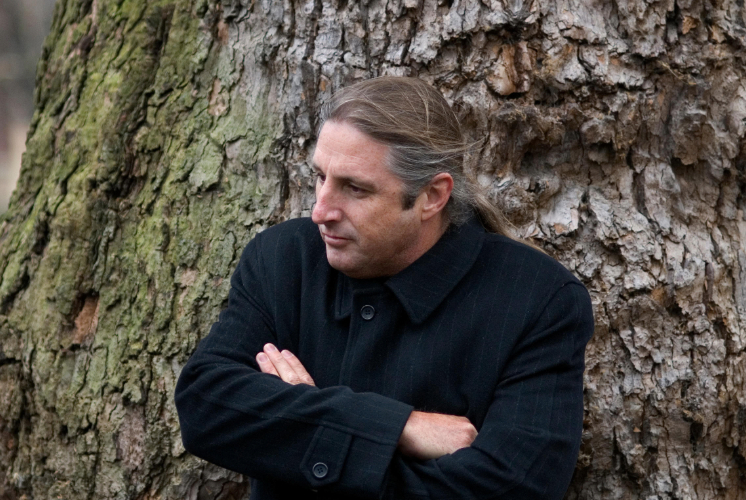I turned 90 recently after a long retirement following decades as an academic and an aquatic scientist working on the zooplankton of Australian and Antarctic waters. But now, every day of my life, there’s something deeply corrosive that eats into my psyche and it’s nothing to do with any fear or dread associated with my forthcoming demise which may not be too far away.
Rather it’s the same fear and dread that currently besets the psyche and mental well-being of many of our youngsters especially the more perceptive ones who ponder their lot beyond everyday trivia. It’s an issue that haunted Tim Winton for some seven largely silent and stressful years as he assembled his new novel Juice.
As a trailer for his new book, Winton wrote a highly perceptive essay entitled “Our leaders are collaborators with fossil fuel colonialists. This is the source of our communal dread”. In this he correctly observes the dejection of young people haunted by climate catastrophe is palpable as shown by several studies. Regarding this, Winton says “I know I’ve failed to defend those who need and deserve my solidarity”.
I share the same sense of failure and it’s this and the associate feeling of guilt that eats into me daily. I am acutely aware that the current widespread inaction on global heating is nothing other than intergenerational theft.
In my eighties I tried to assuage my guilt and do the right thing by eight grandchildren (Winton has six) by writing and publishing several climate change articles. They included: “Our climate-change apathy: gifting our grandchildren a living hell.” (2018); “A crying shame: humanity sleepwalking to disaster.” (2019); “40 years of climate warnings ignored by Australian politicians.” (2020); “The Australian newspaper: decades of disservice to climate science, education.” (2021); and “Coalition’s last-minute shift on net zero beggars belief.” (2021).
I then fell silent apart from the odd letter-to-the-editor after a family member correctly pointed out that because the nature of the places in which I was publishing (no social media involved) I was simply preaching to the converted. It was a deflating realisation that I had been wasting my time and that the totality of my literary efforts would have a negligible effect on the behaviour of the fossil fuel barons and climate change action. This realisation was reinforced when I read a brave article by Katta O’Donnell: “Why I switched from legal action to direct action on climate”.
This issue is visited in Tim Winton’s essay where direct action is in the mix of approaches he endorses: “Committed resisters are actively doing technical, legal and strategic work in government, finance and education to expose and root out the colonial underpinnings of business as usual, while others maintain insurgencies of civil disobedience to disrupt what hasn’t been stopped by more ‘respectable’ means.
All of them deserve our moral and material support.” But those brave souls like Katta O’Donnell and Deanna “Violet” Coco who engage in non-violent direct-action face draconian anti-protest laws enacted by our state governments. At one stage Violet was sentenced to 15 months in prison with a non-parole period of eight months for blocking a single lane of traffic on the Sydney Harbour Bridge to highlight the climate crisis. In Western Australia, Winton mentions the case of a young mother who chalked the slogan “no new gas” on a public bridge and had her home raided by terrorist police in the middle of the night.
Winton plays a brave hand in WA where his state government has become an appalling climate saboteur by abolishing emission-reduction requirements and foreshadowing a 50-year extension to Woodside’s NW Shelf gas processing plant on the Burrup Peninsula. It is estimated that emissions from this extension could reach 6 billion tonnes from exported gas burnt elsewhere.
Winton says few of our leaders inspire hope and are best labelled as collaborators “so ensnared in webs of patronage and co-option that they can neither see nor acknowledge our real predicament, which is a state of global subjugation to fossil capitalism”. Further, he describes how fossil capitalism shapes our world with consequences that are likely to be catastrophic for life on Earth and which is supercharged by a “uniquely sociopathic form of commerce”.
But, Tim, there exists a single word for these five words and it’s “neoliberalism”. And here we come to the recent book by George Monbiot and Peter Hutchinson “The Invisible Doctrine: The Secret History of Neoliberalism (& how it came to control your life)”.
In a concise and hard-hitting chapter they examine in detail the role played by neoliberalism in the climate crisis and note: “The power accumulated by fossil-fuel companies through fifty years of plunder has enabled them to make stupendous profits, a staggering $2.8 billion a day on average across that period. They need invest only a fraction of these profits to buy sufficient politicians, policies – and in some cases, entire political systems – to prevent the replacement of our fossil fuel systems with less damaging alternatives.”
The world is currently beset with multiple climate catastrophes and the associated use of the world “unprecedented” is occurring with unprecedented frequency. Hurricane Milton, Biden’s “storm of the century”, caused large storm surges, enormous property damage, loss of life, and displaced thousands of people. In Spain’s Valencia over 200 people drowned as a year’s rainfall fell in less than a day. Storm Darragh played costly havoc throughout much of the UK. In Australia more than a million households are struggling to insure their homes because of unaffordable, climate-linked premiums. These situations should occasion no surprise. It’s now 36 years since distinguished climate scientist, James Hansen, fronted a US Senate hearing and warned that global heating had begun. And it’s 15 years since he predicted the climate chaos that we are now seeing in his seminal book “Storms of my Grandchildren”.
Monbiot and Hutchinson list 16 countries facing extreme climate risk and say: “Many people will have to move or die. Current global policies are likely to result in about 2.7 degrees C of global heating by 2100. On this trajectory, scientific modelling has forecast that some 2 billion people may be stranded in inhospitable conditions by 2030, and 3.7 billion by 2090. These figures do not take into account the effect of rising sea levels, which could displace hundreds of millions more.” And this is their conclusion: “What we are witnessing is the breakdown, at astonishing speed, of our life support systems – driven by capitalism, accelerated by neoliberalism.”
But the Albanese government has approved more than 20 new coal and gas projects since being elected, subsidises fossil fuels to the tune of $11 billion per annum, and endorses a Future Gas Strategy with gas remaining important to 2050 and beyond. Further, Minister Plibersek recently approved three new major coal mine expansions. Add to this a dodgy system of carbon credits and an inefficient so-called Safeguard Mechanism instead of an efficient price on carbon.
When will climate inaction be called out as climate criminality and fossil fuel lobbyists banned from strutting the corridors of federal parliament? These are the agents of Winton’s fossil fuel colonialists. Those who voted for Labor at the last federal election in the belief that they would take effective action on climate change have been betrayed. But if the LNP were to come to power the situation would be much worse. Dutton has little or no interest in addressing global heating. His nuclear advocacy is simply a smokescreen to slow down and impede the rollout of renewables. That is not to say that at some time in the future (20 years ahead?) nuclear power may be required to play a role in Australia but right now time is too short to be touting this as a practical solution. Nuclear energy has many opponents and objections, but the late James Lovelock of Gaia Hypothesis fame was a notable nuclear advocate and accused fossil fuel interests of opposing the development of nuclear energy.
Tragically, the coming to power of a sociopathic, climate-change-denying Trump in America will have dire consequences for planet Earth and its life. Trump promises to remove the US from the Paris climate agreement and vows to dismantle the support for clean energy projects that flows from the Democrat’s Inflation Reduction Act. Further the US will “drill, baby, drill” for oil and gas. In the words of Michael Mann: “we [the US] now pose a major threat to the planet”.
Humanity’s efforts at combatting global heating are currently running out of juice. And the tragedy is that, unlike some of the world’s major problems, this one was not intractable; with appropriate action three or four decades ago, the outlook would not have been as grim as it now is. Winton’s Juice bears witness: “But all along the most powerful knew what was coming, what it was costing. They hid that knowledge. Buried it. Confused it. Diluted it. To gain advantage, accrue more riches, and, finally, time enough to prepare themselves for flight. —- The future they ate was ours.”
I wonder almost daily whether our youngsters including my grandchildren (or, in turn, their children) are doomed to wander forlornly through the dystopian world of fire, burnt earth, heat-stress, dust storms, famine, thirst and part-time subterranean existence (several months of every year underground) portrayed in Winton’s Juice.
Ian A. E. Bayly holds the degree of Doctor of Science and Bayly Bay in the Vestfold Hills near Davis Station is named in recognition of his contribution to Antarctic science. He is a former Vice-President of ACF.
He is the recipient of the Australian Society for Limnology Medal. He is still publishing scientific papers, being co-author of a chapter in the book Plankton published by CSIRO in March 2019.

